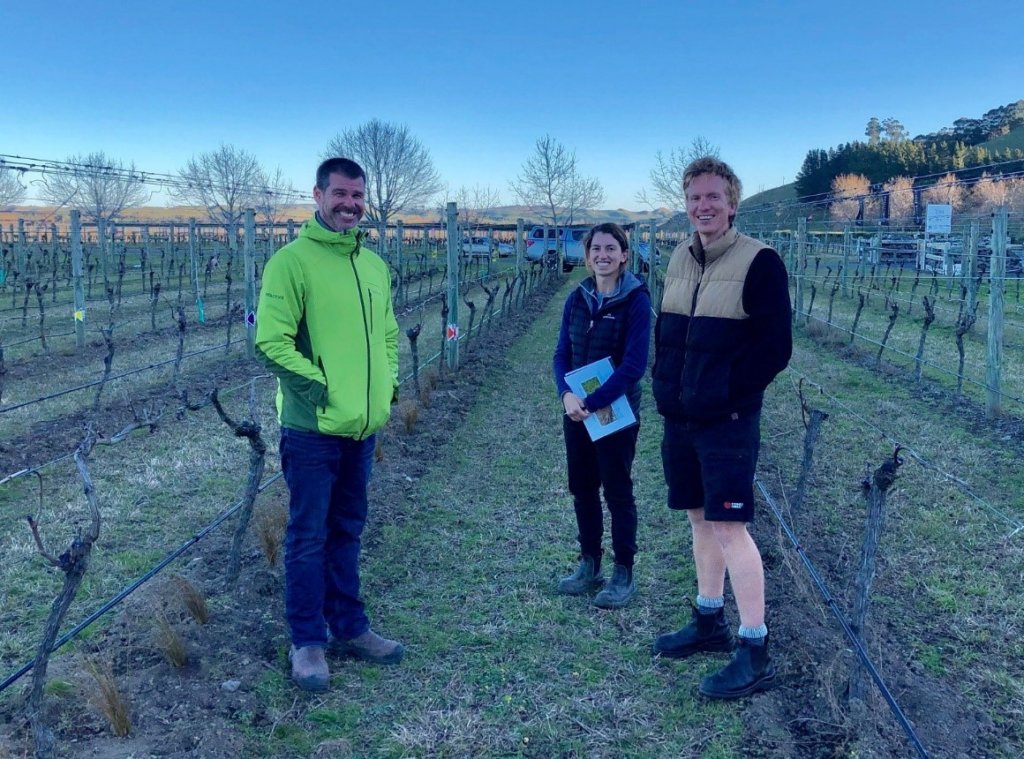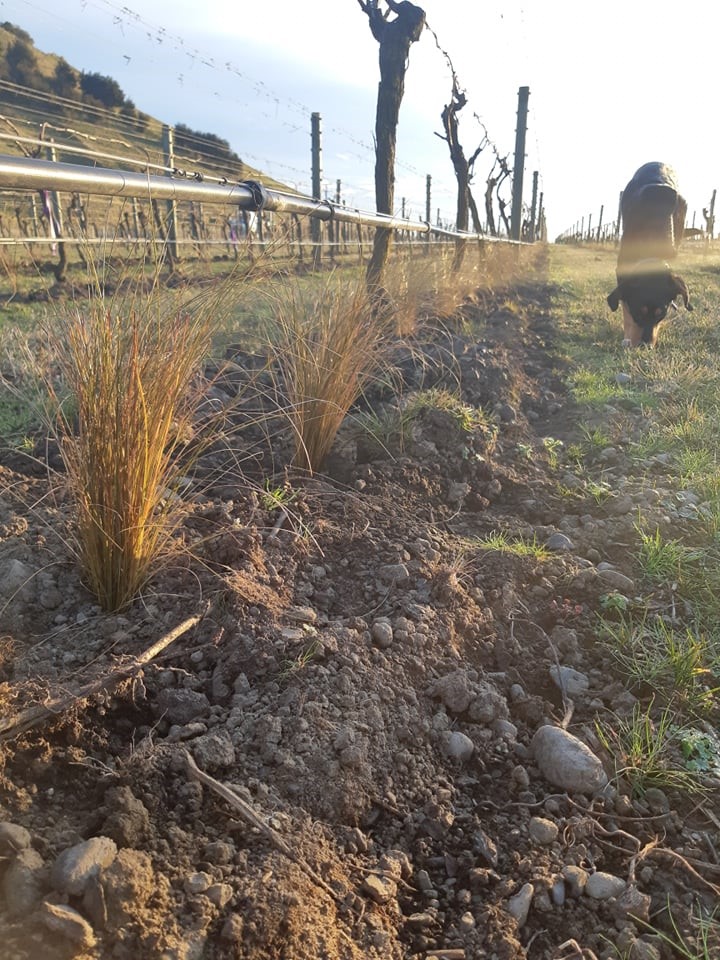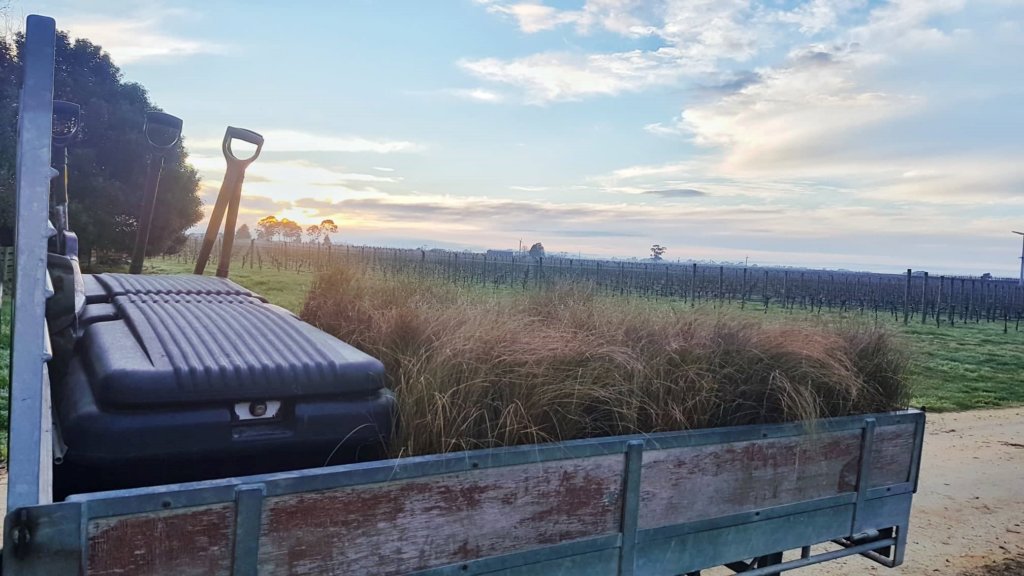
As part of our regenerative approach viticulture Villa Maria has been converting vineyards to organic management for 20 years. It’s been a huge journey of learning how to work with the land to develop resilient vines and produce quality wines that truly reflect the land the grapes are grown on.
Our biggest challenge and our goal is to manage vineyards without herbicides for weed control. In organic vineyards under vine cultivation or mowing is often used which damage vines and means more tractor use with fuel use and soil compaction. Maintaining soil health and structure is core to sustainable vineyard management and builds resilience to the droughts or heavy rains that are increasing with climate change.

That’s why our Viticulture team has partnered with the Ministry of Primary Industries on a trial to use native plants and cover crops to manage weeds. The trial started in August 2019 at two sites in the Hawkes Bay (Gimblett Gravels Syrah and Bridge Pa silt loam Merlot). with several different varieties are being trialed. The aim is to test if the plants are effective in suppressing weeds without negatively impacting vine health and grape quality. Additional benefits such as biodiversity, soil structure and moisture retention will be monitored too.
If successful the use of native plants or cover crops could reduce carbon emissions and labour costs associated with weed management, improve vineyard ecosystems and nurture the soil. There may be challenges with sourcing the plants and upfront costs however Villa Maria has learnt that making sustainable decisions means taking a long term view.
The preliminary findings are positive with the initial phase of trial is due to finish in June 2020. As members of Sustainable Winegrowing New Zealand, we will share any solutions or learnings with the wider New Zealand wine industry. It’s a collaborative industry when it comes to sustainability as we are all focused on caring for the land we love.

